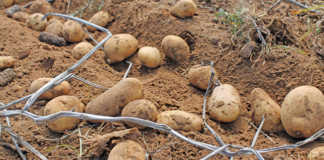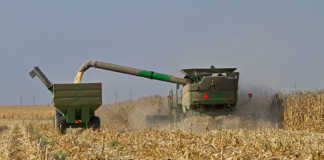The Agribusiness Confidence Index is compiled quarterly by Agbiz and the Industrial Development Corporation and reflects the perception of South African agribusinesses on various aspects of the agricultural economy.
According to Wandile Sihlobo, head of economic and agribusiness intelligence at Agbiz, the results were concerning as they showed that business activity in the sector was contracting.
“Some numbers do present a slightly positive perspective when viewed on a quarterly basis, but what’s more interesting is that the long-term picture is still bad,” Sihlobo said.
He said that the index had been below 50 points for the past four consecutive quarters. This was a trend that had previously only occurred in times of serious crises, such as the droughts of 2003 and 2005, and the global financial crisis of 2008 and 2009.
“Against this background, the latest confidence index comes as no surprise,” he said. As the industry suffered through an unprecedented El Niño-induced drought, the agricultural Gross Domestic Product for the fourth quarter of 2015 contracted by 14% quarter-on-quarter.
Turnover contracted by 8,4% quarter-on-quarter and 21% year-on-year, which reflected reduced productivity in primary agriculture. Sihlobo expected that turnover in the next quarter was likely to remain under pressure as the total summer crop harvest was expected to contract by a further 27%, year-on-year, to 8,7 million tons.
Farm debt rose by 7% year-on-year, from R117 billion in 2015 to R126 billion in 2016. “There is growing sentiment amongst agribusinesses that some farmers might not be able to meet their debt obligations, thus increasing risk for agribusinesses,” Sihlobo explained.
Capital investment also took a knock with a 14% decline year-on-year. This contraction was driven by factors such as drought, as well as the political uncertainty pertaining to land reform.












